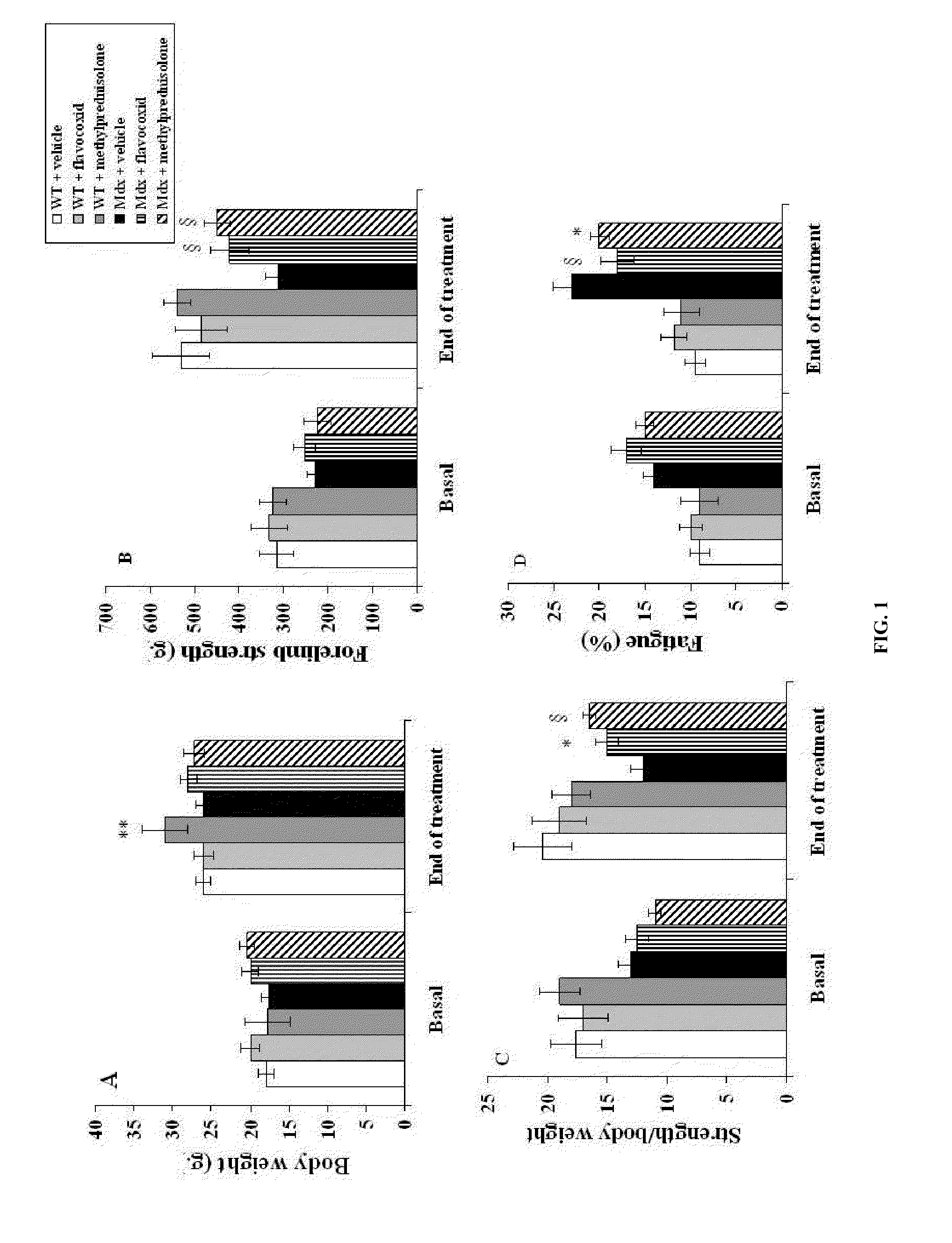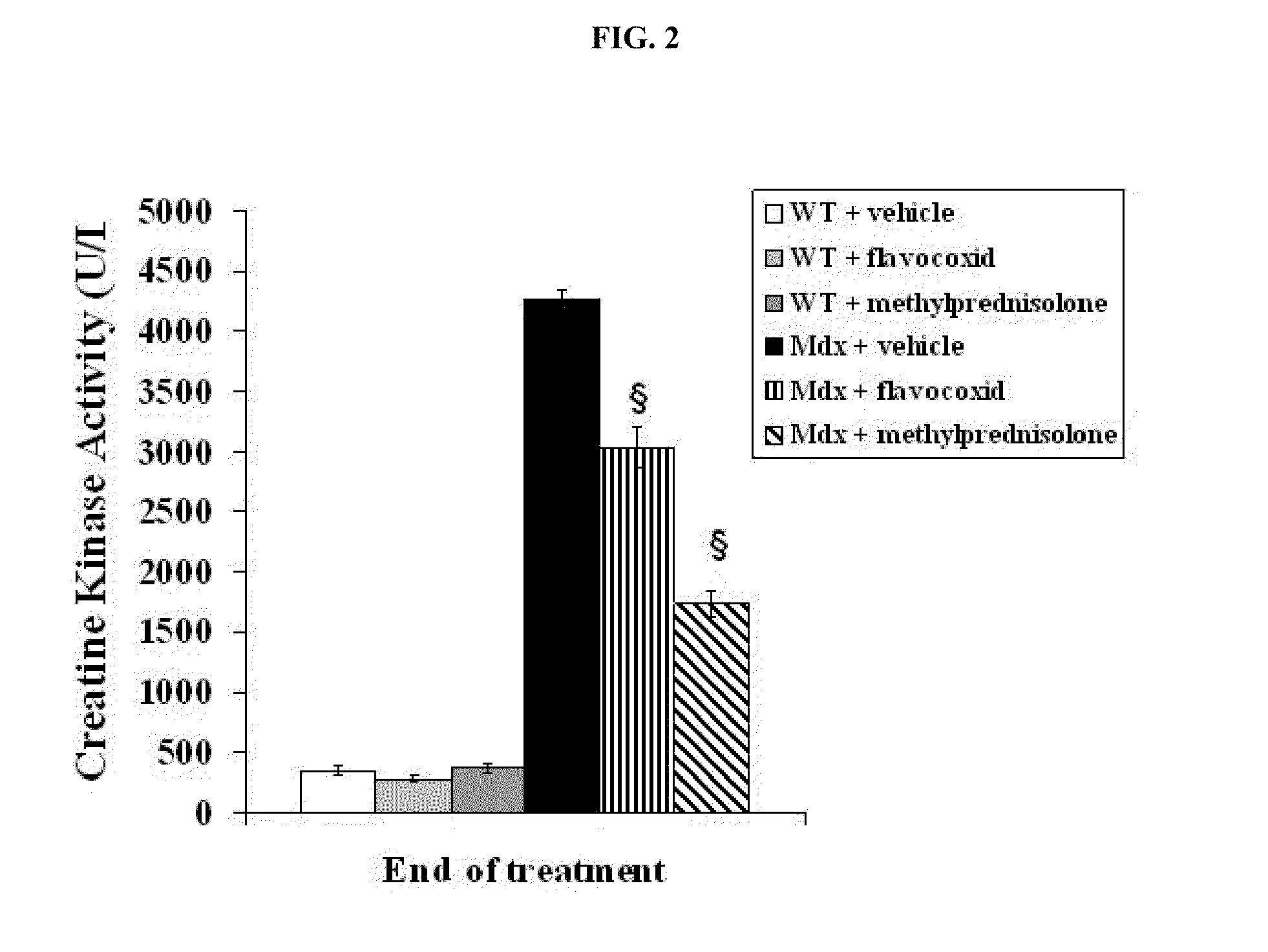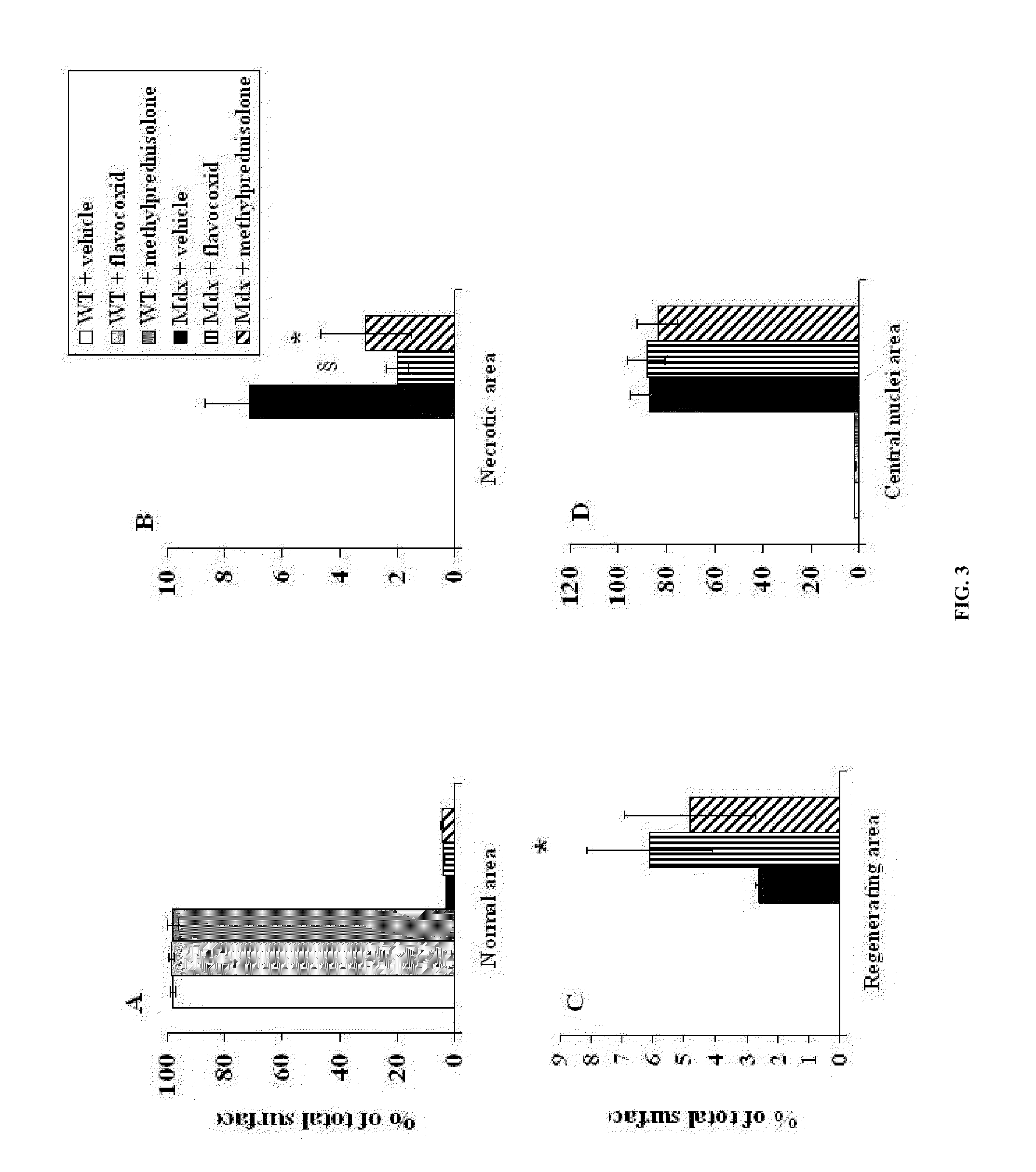Methods of Treating Muscular Dystrophies
a muscular dystrophic and muscular tissue technology, applied in the field of muscular dystrophic disease treatment methods, can solve the problems of difficult to predict which of the large variety of flavonoid molecules, and the precise biological properties of specific types of flavonoids are poorly understood
- Summary
- Abstract
- Description
- Claims
- Application Information
AI Technical Summary
Benefits of technology
Problems solved by technology
Method used
Image
Examples
example 1
Treatment of Wild-Type and MDX Mice with Flavocoxid
Materials and Methods
[0095]Animals
[0096]Male mdx and wild-type C57BJ / 10 (WT) mice were obtained from Jackson Laboratories (Bar Harbor, Me., USA). Mice were housed in plastic cages in a temperature-controlled environment with a 12-h light / dark cycle and access to standard laboratory food and tap water. The investigation conformed to the Guide for the Care and Use of Laboratory Animals published by the US National Institutes of Health (NIH Publication No. 85-23, revised 1996).
[0097]Five-week old mdx and WT mice were treated for 5 weeks with daily 100 μl intraperitoneal injections with either flavocoxid (a mixture of catechin and baicalin) (n=8, 5 mg / kg), methylprednisolone (n=8, 0.75 mg / Kg) or vehicle (n=8, 33% (v / v) dimethylsulphoxide (DMSO) in 0.9% NaCl). At the end of the experiments, animals were anaesthetized with intraperitoneal administration of sodium penthobarbital (80 mg / kg). Blood was then collected by intracardiac puncture...
example 2
Treatment of Wild-Type and MDX Mice with Genistein
Materials and Methods
[0125]Animals
[0126]Mdx animals were purchased from Charles River Italy (Calco, Milan, Italy). Animals were 4 weeks old on arrival and were acclimatized for 5 days before the study. At the beginning of the experiment the mice, which were at that point 5 weeks old, weighted about 20-22 grams. The mice were treated daily for 5 weeks with either the phytoestrogen genistein (Sigma, Mo., USA) at a dose of 2 mg / kg / ip or its vehicle (1:3 DMSO: 0.9% NaCl solution).
[0127]Statistical Analysis
[0128]Results were expressed as mean±SD. Statistical comparison between treated and control groups was performed by the 2-tailed Student's t-test on paired samples with the use of InPlotPrism software version 3.0 (GraphPad Software, San Diego, Calif., USA). P values<0.05 were considered significant.
Results
[0129]Strength Examinations
[0130]Mice were weighed and examined for forelimb strength at baseline and at the end of the experiment. S...
PUM
| Property | Measurement | Unit |
|---|---|---|
| area | aaaaa | aaaaa |
| volume | aaaaa | aaaaa |
| pH | aaaaa | aaaaa |
Abstract
Description
Claims
Application Information
 Login to View More
Login to View More - R&D
- Intellectual Property
- Life Sciences
- Materials
- Tech Scout
- Unparalleled Data Quality
- Higher Quality Content
- 60% Fewer Hallucinations
Browse by: Latest US Patents, China's latest patents, Technical Efficacy Thesaurus, Application Domain, Technology Topic, Popular Technical Reports.
© 2025 PatSnap. All rights reserved.Legal|Privacy policy|Modern Slavery Act Transparency Statement|Sitemap|About US| Contact US: help@patsnap.com



